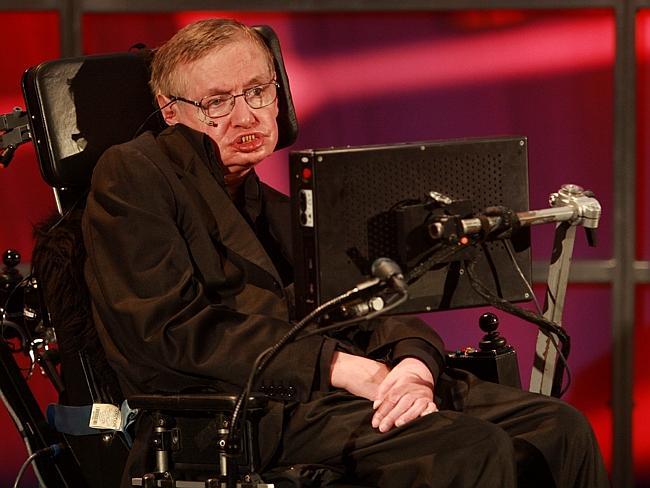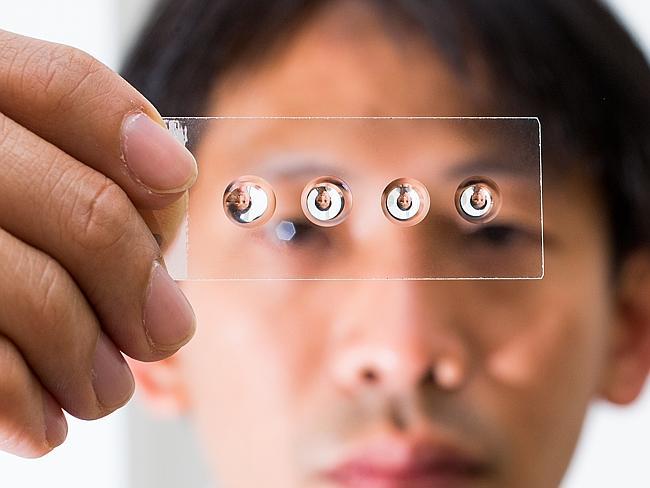Why you don’t want to be the smartest person in the room
BEING smart is a noble goal, but what if we told you it was totally overrated and you should strive to surround yourself with people smarter than you?

Leaders
Don't miss out on the headlines from Leaders. Followed categories will be added to My News.
I RECENTLY read a very insightful list of things one learns after moving to Washington, DC. I loved it so much for its pith and accuracy.
As a newcomer to The District myself, I found particularly intriguing item #5 from the list: “You’re never the smartest person in the room (and you don’t want to be).”
This was so simple, yet so very poignant and, to me at least, pointed toward a decidedly fresh perspective on life. This can be applied especially when it comes to our manner of leading and exchanging ideas. One of my roommates didn’t take to the notion of not being the “smartest person in the room” too keenly.
“Why wouldn’t you want to be?” he said, in awe of any assertion to the contrary. This sat with me for whatever reason as things are want to do. I realised that I have been fortunate to be surrounded by a diverse group of thinkers with different passions and strengths.

I’m positive that these people would by and large consider themselves to be smart — perhaps even exceptionally smart ... but the smartest person in the room? What is the intrinsic value of being the smartest person in the room? You know all of the answers to all of the questions. Sure. You are especially useful when Jeopardy comes on. Fantastic! You wield within you a host of knowledge that you can impart whenever and wherever. Aha!
Therein, rests the problem. Our nation’s capital is overflowing with intimidatingly intelligent people doing absolutely brilliant and inspiring things. (Kindly disregard all the media are telling you). There are individuals who are well on their way to being masters of their respective universes or some such. With that, comes a degree of certitude, expanded breath of knowledge, and yes some heightened smarts.
The key with this is to know how and when to share these accrued talents and expertise. In one’s haste to be the smartest person in the room, one misses opportunities to engage across the human existence ... becoming a more useful and enlightened citizen of the world in the process.
One should never strive to be the smartest person in the room. To exist on that plane — immovable and replete with satisfaction from your pompous correctness — is to be in a mindset that really isn’t useful for actually solving problems. In our rush to be right and prove ourselves the best, we miss subtleties and human motivations.

If you can understand why and how a person thinks what it is that they think, you transcend any advantage mere smarts can give you. Effective problem solving (well effective anything, really), requires that an individual be able to see, understand and appreciate nuance. People have been equipped with minds and the innate power to use them (whether or not they choose to use them is another topic entirely).
The basic rule that I’ve come to adopt is “the opposite of what you hold to be true is also true.” Our life experiences are gloriously different for a reason. The goal should be to find those cross-sections of shared humanity and use them to inspire genuine dialogue across difference. We cannot lead or be true agents for change or societal progress if our beliefs are so calcified and stubborn to preclude ideas that dare to exist outside our own. This has become the trademark of our government’s inability to function properly. Many of our leaders are convinced of the infallibility of their own personal philosophies.
No side has a premium on solutions. No political entity can claim complete moral authority. No person has all the answers. What fun would that be? So no, I shall never be the smartest person in the room. Heaven knows I don’t want to be. I really want to be the best iteration of myself so that I may be of use to others. That nagging desire to self-aggrandise is one that is calamitous for the future of society.
There is absolutely nothing wrong with projecting confidence and drawing from your intellect. Hell, you might even inspire someone. There’s a time and place for everything. The key is to know when it’s time for you to perform and also when it’s time for you to sit down, shut up and have a glass of wine.
Here’s a hint: the latter should be happening more than the former. All right. End of rant.
This article originally appeared on The Huffington Post and is republished here with permission.


